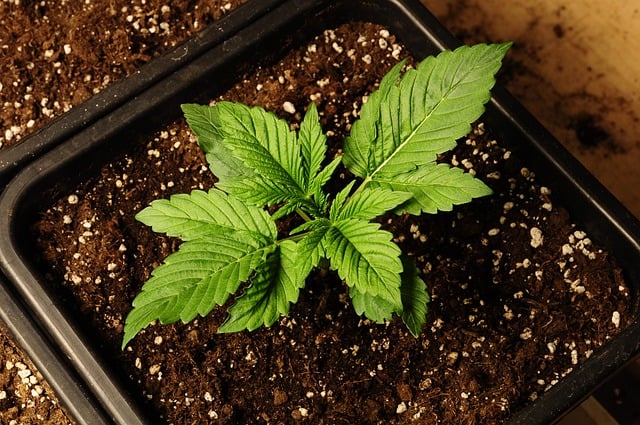THCA buds, a non-psychoactive compound derived from raw cannabis plants, are being researched and used by some as a natural treatment for sleep disorders. These buds interact with the endocannabinoid system, which plays a crucial role in regulating sleep cycles. Emerging studies suggest that THCA may benefit individuals with sleep disturbances like insomnia and sleep apnea by promoting restful sleep, potentially due to its ability to facilitate deep REM sleep and expedite the onset of sleep. The sedative effects of THCA are thought to stem from its influence on neurotransmitter activity, which can help users fall asleep faster and improve overall sleep quality. However, it is essential for individuals to consult healthcare professionals before using THCA buds, as dosage and individual responses can vary, and potential side effects such as dizziness or gastrointestinal discomfort should be considered. The therapeutic potential of THCA buds for managing sleep disorders is promising, but personalized medical guidance is necessary to ensure safety and effectiveness.
Exploring the complex interplay between cannabinoids and sleep, this article sheds light on THCA flower’s potential role in addressing sleep disorders. From its interaction with the endocannabinoid system to safety considerations and research findings, we delve into the multifaceted effects of THCA buds on sleep quality. As an alternative therapy, understanding dosage, legal implications, and terpene profiles is crucial for personalizing your sleep remedy effectively. We will navigate the nuances of integrating THCA flower into your sleep hygiene routine, ensuring you make informed decisions based on scientific evidence and quality assurance practices. Whether comparing THCA to CBD or CBN for sleep or examining long-term effects, this comprehensive guide aims to offer a holistic approach to enhancing sleep health with THCA buds.
- Understanding THCA Flower and Its Relationship to Sleep Disorders
- The Science Behind THCA Buds and Their Impact on Sleep
- Potential Side Effects of Using THCA Flower for Sleep
- Dosage and Safety Considerations When Using THCA for Sleep Issues
- How THCA Flower Interacts with the Body's Endocannabinoid System
- The Role of Terpenes in THCA Buds and Their Effect on Sleep Quality
Understanding THCA Flower and Its Relationship to Sleep Disorders
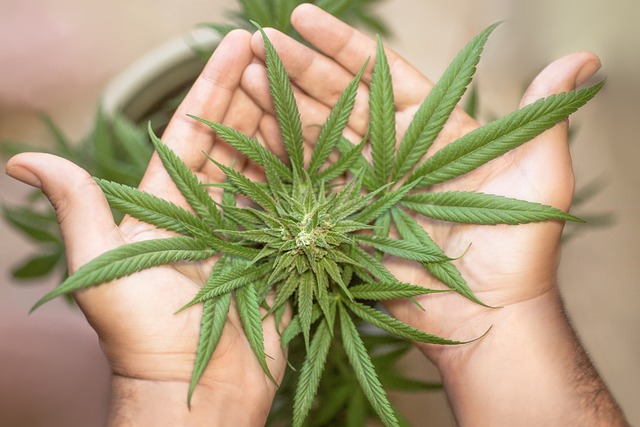
Delta-9-tetrahydrocannabinolic acid (THCA) is a non-psychoactive cannabinoid found naturally in raw cannabis plants, including THCA buds. It’s the precursor to delta-9-tetrahydrocannabinol (THC), the compound known for its psychoactive effects. THCA has garnered attention for its potential therapeutic properties, particularly in relation to sleep disorders. Studies suggest that THCA may have a biphasic effect on sleep; low doses might promote wakefulness and alertness, while higher doses could induce sedation and aid in achieving a restful state conducive to sleep. This dual action makes THCA buds for sleep disorders an area of ongoing research.
The relationship between THCA and sleep is complex, as it interacts with the body’s endocannabinoid system, which regulates various physiological processes, including sleep-wake cycles. THCA binds to cannabinoid receptors in the brain, potentially influencing the release of neurotransmitters that affect sleep patterns. For individuals experiencing sleep disturbances, particularly those with conditions like insomnia or sleep apnea, THCA buds may offer a natural alternative for improving sleep quality. Users report anecdotal evidence of improved sleep architecture and a reduction in the time it takes to fall asleep after consuming THCA-rich products. As such, THCA buds for sleep disorders hold promise as a complementary or alternative treatment option, though further clinical research is necessary to fully understand their efficacy and long-term effects.
The Science Behind THCA Buds and Their Impact on Sleep
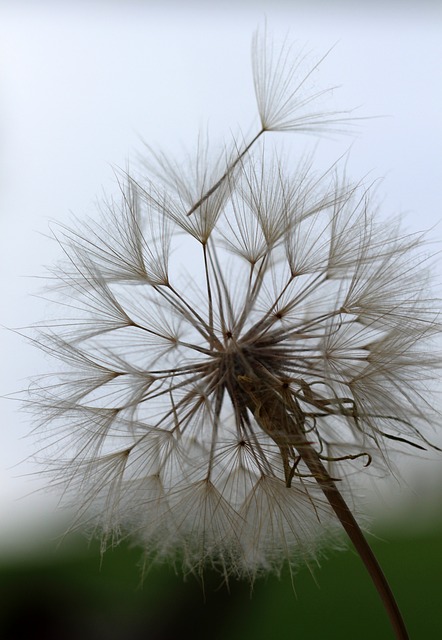
THCA, or tetrahydrocannabinolic acid, is a non-psychoactive cannabinoid found in the raw cannabis plant, which, when heated or decarboxylated, converts into the well-known THC. Research has indicated that THCA buds may offer therapeutic benefits, including potential impacts on sleep regulation. The endocannabinoid system within our bodies plays a crucial role in maintaining balance, known as homeostasis, which includes regulating sleep patterns. Studies suggest that THCA interacts with the body’s cannabinoid receptors, potentially influencing sleep architecture by enhancing deep REM sleep and shortening the time it takes to fall asleep. This is particularly relevant for individuals suffering from sleep disorders, as THCA buds might provide a natural alternative to pharmaceutical sleep aids without the psychoactive effects of THC. The sedative properties of THCA buds are believed to stem from its ability to modulate neurotransmitter function, which can alleviate insomnia and promote more restful sleep. Users often report feeling relaxed and drowsy after consuming THCA-rich products, making them a popular choice for those looking to improve their sleep quality. However, it is important to consult healthcare professionals before incorporating THCA buds into any treatment plan for sleep disorders, as individual responses may vary and the optimal dosage can differ based on various factors including body chemistry and the specific strain of cannabis being used.
Potential Side Effects of Using THCA Flower for Sleep
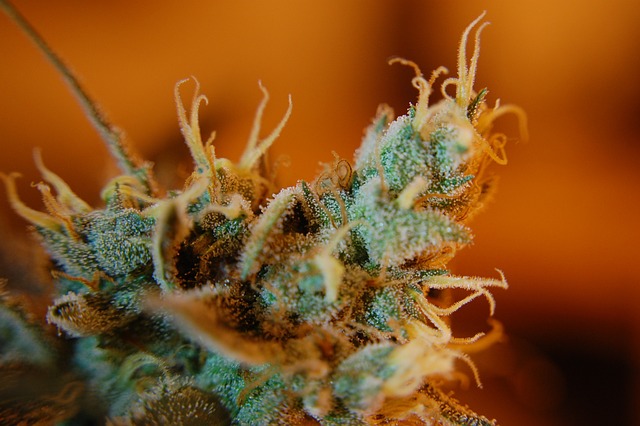
THCA, or tetrahydrocannabinolic acid, is a natural compound found in cannabis plants that has garnered attention for its potential therapeutic properties. Among these, THCA buds are increasingly being explored for their possible effects on sleep disorders. While THCA itself is non-psychoactive unlike its derivative THC, it interacts with the body’s endocannabinoid system and may influence sleep architecture. Users report that THCA buds can promote relaxation and may help alleviate insomnia and improve overall sleep quality. However, as with any substance, there can be side effects. Some individuals may experience mild side effects such as dizziness or dry mouth upon using THCA buds for sleep. These effects are typically minor and subside once the body acclimates to the compound. Nevertheless, it is crucial for potential users to approach THCA flower with caution, especially if they have pre-existing health conditions or are taking other medications. Consulting healthcare professionals before incorporating THCA buds into a sleep regimen is advisable to ensure safety and efficacy for individual needs.
While the potential benefits of THCA buds for sleep disorders are promising, it is important to consider individual responses as they can vary significantly. Some users might find that THCA helps them fall asleep faster and improves the duration and quality of their sleep, while others may not experience significant effects. The side effects associated with THCA flower, although generally mild, can include gastrointestinal discomfort in some cases. It is also worth noting that the effects of THCA can be influenced by the method of consumption, dosage, and individual body chemistry. Therefore, a personalized approach under professional guidance is recommended to optimize outcomes and minimize potential side effects when using THCA buds for sleep disorders.
Dosage and Safety Considerations When Using THCA for Sleep Issues
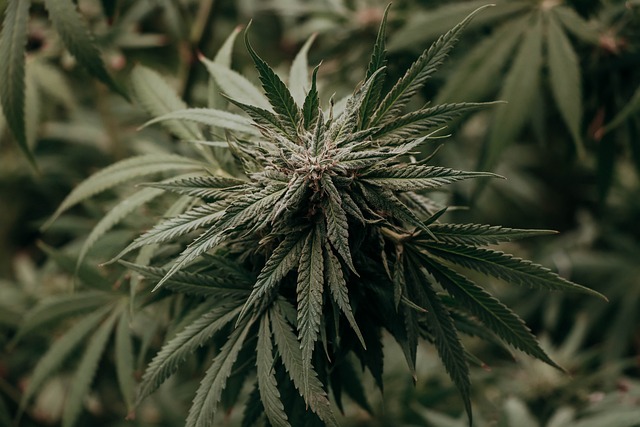
THCA, or tetrahydrocannabinolic acid, is a non-psychoactive cannabinoid found in raw cannabis plants and precursors to THC. While it’s gaining attention for its potential therapeutic benefits, including its effects on sleep disorders, understanding the proper dosage and safety considerations is paramount. Users considering THCA buds for sleep disorders should start with a low dosage to gauge individual sensitivity. Typically, a dose between 1-5 milligrams of THCA per day can serve as a starting point; however, this may vary based on body weight, tolerance, and the specific condition being addressed.
It’s essential to approach the use of THCA with caution due to its potential effects on sleep architecture. High doses may disrupt sleep patterns initially, leading to increased wakefulness or vivid dreams before promoting restful sleep. Safety considerations also include potential side effects such as drowsiness, fatigue, and gastrointestinal distress, which can be exacerbated by higher dosages. Long-term use should be monitored for any changes in sleep quality or the emergence of adverse reactions. Consultation with a healthcare provider is recommended to tailor THCA use to individual needs and to ensure that it does not interfere with other treatments or medications.
How THCA Flower Interacts with the Body's Endocannabinoid System
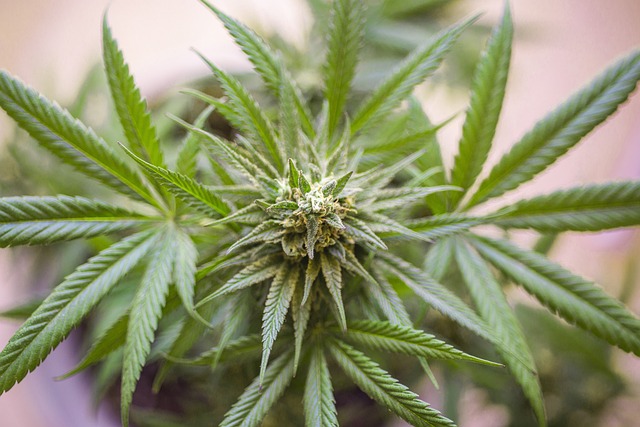
Delta-9-tetrahydrocannabinolic acid (THCA) is a non-psychoactive cannabinoid found in raw cannabis plants and the precursor to the well-known psychoactive compound delta-9-THC. When ingested in its acidic form, THCA interacts with the human body’s endocannabinoid system (ECS), which is a complex cell-signaling system identified in the early 1990s. The ECS plays a crucial role in regulating a range of physiological processes, including sleep, appetite, pain sensation, and immune response. THCA’s engagement with the ECS is primarily mediated through its binding to cannabinoid receptors, particularly CB1 and CB2 receptors. Unlike its psychoactive counterpart, THCA does not induce a high but has been reported to possess potential therapeutic benefits for individuals with sleep disorders. Studies suggest that THCA may help regulate sleep patterns by influencing the ECS, potentially leading to better sleep quality and duration without the mind-altering effects of THC. This is particularly promising for those seeking natural remedies or alternatives to conventional sleep aids. Users interested in exploring THCA buds for sleep disorders should consider consulting healthcare professionals to understand the appropriate dosages and interactions with other medications, ensuring safe and effective use within their wellness regimen.
The Role of Terpenes in THCA Buds and Their Effect on Sleep Quality
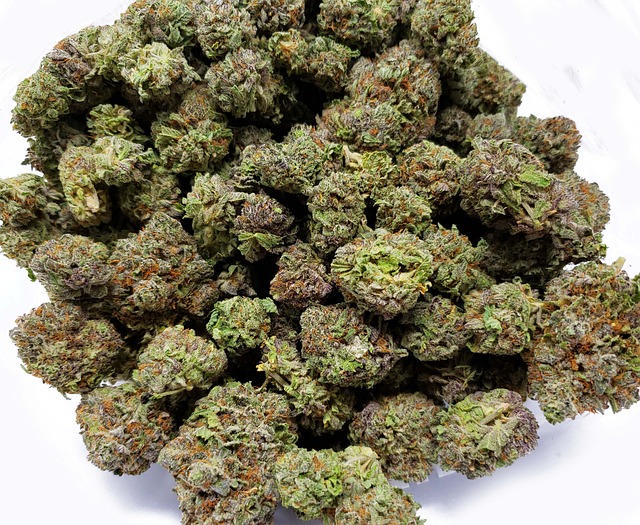
THCA, or tetrahydrocannabinolic acid, is a non-psychoactive cannabinoid found in cannabis and hemp plants that has been gaining attention for its potential therapeutic benefits. Among these, THCA buds have shown promise in addressing sleep disorders. The efficacy of THCA buds for sleep disorders is partly attributed to the presence of terpenes, which are aromatic compounds found alongside cannabinoids in the cannabis plant. These terpenes interact with the body’s endocannabinoid system and can influence sleep quality by modulating various physiological processes.
For instance, myrcene is a commonly found terpene in THCA buds, known for its sedative properties. It may enhance the psychoactive effects of THC (tetrahydrocannabinol) when present in higher amounts but on its own has a relaxing effect that can aid in falling asleep faster and improving sleep duration and quality. Another terpene, linalool, also contributes to the sedative qualities of THCA buds, offering anxiolytic (anxiety-reducing) effects that help alleviate stress and promote relaxation conducive to sound sleep. Additionally, caryophyllene exhibits anti-inflammatory properties that can address sleep disturbances caused by pain or discomfort. These terpenes, in concert with THCA’s own relaxing effects, make THCA buds a potential natural alternative for managing sleep disorders without the psychoactive influence of THC. Users experiencing sleep issues are exploring THCA buds as a means to improve their sleep quality, with anecdotal evidence supporting its benefits. However, it is crucial for individuals to consult healthcare professionals before incorporating THCA buds into their regimen, considering factors like dosage, strain potency, and personal health conditions that may affect how these compounds influence sleep.
Users exploring THCA buds as a remedy for sleep disorders should be aware of their potential side effects, which include mild psychoactive effects and possible interactions with other medications. It’s crucial to consider dosage and safety when incorporating these buds into one’s routine, as they can influence the endocannabinoid system and terpenes play a role in modulating sleep quality. This article has shed light on the relationship between THCA flower and sleep, providing a comprehensive overview of the science behind its impact on sleep. While THCA buds for sleep disorders offer a promising alternative, careful consideration is necessary to ensure safe and effective use.
